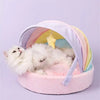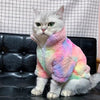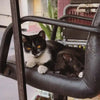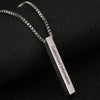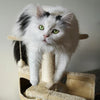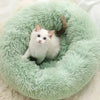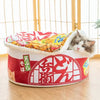Can Cats Eat Bacon? Understanding the Health Implications
Many pet owners enjoy sharing small bites of their meals with their feline companions, and bacon, being a popular and flavorful food, often comes into question. But can cats eat bacon safely? This article examines the nutritional composition of bacon, how it affects a cat's health, and whether it should be part of their diet. Based on veterinary science and feline nutrition research, we aim to provide cat owners with evidence-based guidance on this topic.
The Nutritional Composition of Bacon
Bacon is a cured meat product typically made from pork. It undergoes sitting and smoking processes that enhance its flavor but also significantly alter its nutritional profile. A typical slice of cooked bacon contains high levels of saturated fat, sodium, and preservatives such as nitrites and nitrates. While it is rich in protein, which is essential for a cat's diet, the protein in bacon is accompanied by other compounds that can pose risks to feline health.
Cats are obligate carnivores, requiring protein from animal sources for optimal health. However, the type and source of that protein matter. The high fat-to-protein ratio and the presence of chemical additives make bacon a less-than-ideal protein option. Furthermore, even small quantities of sodium can adversely impact a cat's kidney function over time, especially in older felines or those with preexisting conditions.
Risks of Feeding Bacon to Cats
The most significant risk of feeding bacon to cats is its high sodium content. While humans can tolerate moderate amounts of dietary sodium, cats require a much lower intake. Feeding bacon, even occasionally, can contribute to electrolyte imbalances and place strain on the kidneys and cardiovascular system. Overconsumption may lead to symptoms such as increased thirst, vomiting, diarrhea, and in severe cases, sodium ion poisoning.
Additionally, the high fat content in bacon increases the risk of pancreatitis in cats—a serious inflammatory condition of the pancreas. Clinical signs of feline pancreatitis include lethargy, abdominal pain, appetite loss, and vomiting. This condition requires prompt veterinary attention, and dietary indiscretions like bacon are known risk factors. Fatty foods like bacon can also contribute to feline obesity, a growing health concern in domestic cats that increases their risk for diabetes and arthritis.
What Do Veterinary Experts Say?
According to the American Society for the Prevention of Cruelty to Animals (ASPCA), bacon is considered non-toxic to cats but is not recommended due to its high salt and fat levels. Most veterinary nutritionists agree that while a tiny piece of bacon won't harm a healthy adult cat, regular or large quantities are detrimental. The veternary consensus suggests limiting high-fat, processed meats and focusing instead on lean, cooked meats like chicken, turkey, or fish as safe treats.
It's important to note that feline digestive systems are optimized for raw or minimally processed meat. The additives in bacon, such as nitrates, not only provide no nutritional value but may also disrupt gastrointestinal health and immune function over time. When in doubt, consult your veterinarian before introducing any new human food into your pet’s diet.
Safe Alternatives to Bacon for Cats
If you want to provide your cat with a savory treat that mimics the flavor of bacon, there are safer options available. Several pet food companies manufacture bacon-flavored cat treats that meet AAFCO guidelines for feline nutrition. These treats are formulated to deliver similar taste experiences without the excess sodium and fat found in traditional bacon.
You can also offer small portions of plain, boiled chicken or turkey as an occasional treat, which are more aligned with your cat's nutritional needs. Always avoid adding seasoning, garlic, or onions, as these are toxic to cats. Simple, single-ingredient meat sources are best when giving your cat an off-menu snack.
Conclusion: Should You Feed Your Cat Bacon?
While bacon might be a tasty indulgence for humans, it should not become a regular part of your cat’s diet. Given its high fat and sodium content, along with potential chemical additives, bacon poses significant risks to feline health when consumed often or in large amounts. An occasional nibble may not cause harm for healthy cats, but it is safer to provide cat-specific treats or fresh, lean meats.
At Pet Zeals, we encourage informed decisions when it comes to pet nutrition. Always prioritize your cat’s long-term health and well-being by choosing treats designed with their dietary needs in mind. If you're ever unsure about a particular food item, including bacon, consult with your veterinary professional to evaluate its safety.



